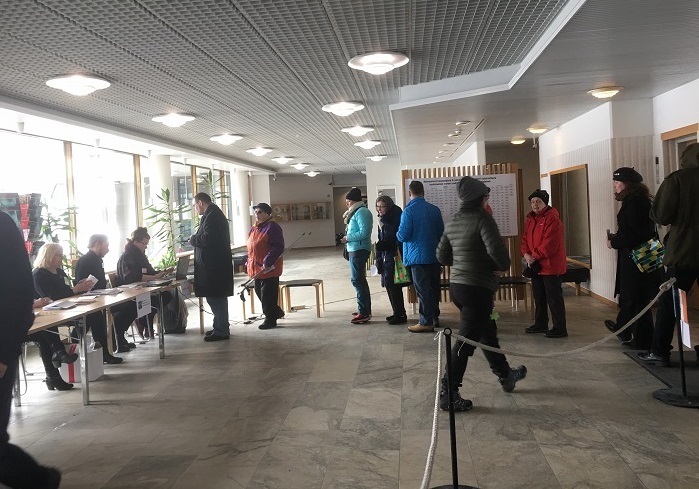Welfare issues remain dominant in election campaign
Published : 28 Mar 2019, 23:44
Updated : 28 Mar 2019, 23:59
With slightly over two weeks to go before the parliamentary election, the campaign debates are reflecting the old divergence between social democratic approaches and non-socialist attitude in a way not seen in Finland for decades.
While the combat against climate change was earlier a major election theme, the media findings in January this year have turned the focus of debates to the future of Finnish welfare system.
Matti Apunen, a senior analyst hired by the national broadcaster Yle for its election programs, has kept repeating that there will be a "quality of care election".
News broke out in January that public authorities had closed a commercially operated senior home due to poor conditions. Bedridden patients had not been washed and medication had not been given as prescribed.
Within a week or so, other similar cases showed up all over the country. In an attempt to cut costs, commercial operators had reduced staffing and even included non-present nurses on the shift lists knowing they were not there.
CUTS TO BE REVOKED?
The center-right caretaker government under Prime Minister Juha Sipilä had planned, before its resignation early March, to improve the position of the private sector as the provider of publicly funded welfare and health services.
The plan finally faltered as the legislation drafting met constitutional problems and the parliament did not have the time to process it before the general polls due on April 14.
The opposition the Suomen Sosialidemokraattinen Puolue (Social Democratic Party of Finland-SDP) has said it would reverse many of the cutbacks in public spending done by the ruling coalition, and would reform the health care and social service system on the basis of keeping it firmly in public control and giving public providers the leading role. Private providers would have a role as well, but only as additional input.
The social democrats would also cancel the cutbacks on education and revoke the activation program supposed to inject dynamics by reducing the unemployment benefits. The activation program once triggered major strikes and demonstrations by trade unions in 2017.
SDP chairman Antti Rinne could not specify this week the cost of all the pledged changes, but gave it between "one and three" billion euros.
CONCEPT OF WELFARE
Markku Jokisipila, the director of the parliamentary studies center at Turku University, noted that the welfare system is a key competence field of the social democrats who would benefit from the current situation by offering clear alternatives to replace the former governmental plans.
Analysts believe the SDP's leading position in pre-election surveys by five percentage points more than other parties would guarantee a safe result in the poll. The social democrats enjoy a support level of 21 percent, while the other major parties are in the region of 14 to 16 percent.
Observers have noted that in Finland now no one could successfully challenge the concept of a welfare state, for example, by introducing more individual or family responsibility. Analyst Apunen went as far as to describe the ideas of promoting market-driven health care service as "nuclear waste" in the current opinion climate.
As a result, also the market oriented political segment want to profile themselves as defenders of the welfare state. Both the centrists and the conservatives say their policies of supporting entrepreneurs and businesses aim at defending the welfare state through creating the taxation base that would bolster the structure.
CONCERNS OVER TAXATION
While the leaders of the Kansallinen Kokoomus (National Coalition Party-NCP) argue the welfare state needs a sound business and industrial base in Finland, the opposition social democrats are putting more directly that taxation is needed to maintain the welfare state and to offer the services such as medical and senior care and free education.
As the emergence of SDP as the new leading party looks fairly certain, there have been expressions of concern from the business sector.
Finnish language business daily Kauppalehti on Wednesday quoted Mikael Pentikainen, CEO of the Association of Entrepreneurs of Finland, as saying the past four years have been "good" from the point of view of the entrepreneurs. "Increasing the taxation of entrepreneurs would be disastrous," Pentikainen said.
Local observers have noted the opposition social democrats mainly view taxation as a tool to maintain social services, whereas the coalition government so far has viewed it in terms of creating possibilities for growth.
SDP Antti Rinne has said that his party would not favor the increase of income tax of individuals, but new taxation base would be found and indirect taxation could be developed. Analyst Apunen noted the social democrats have had "difficulty in formulating policies on the taxation of capital gains income".


